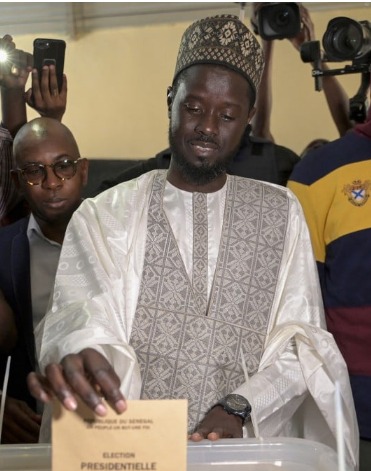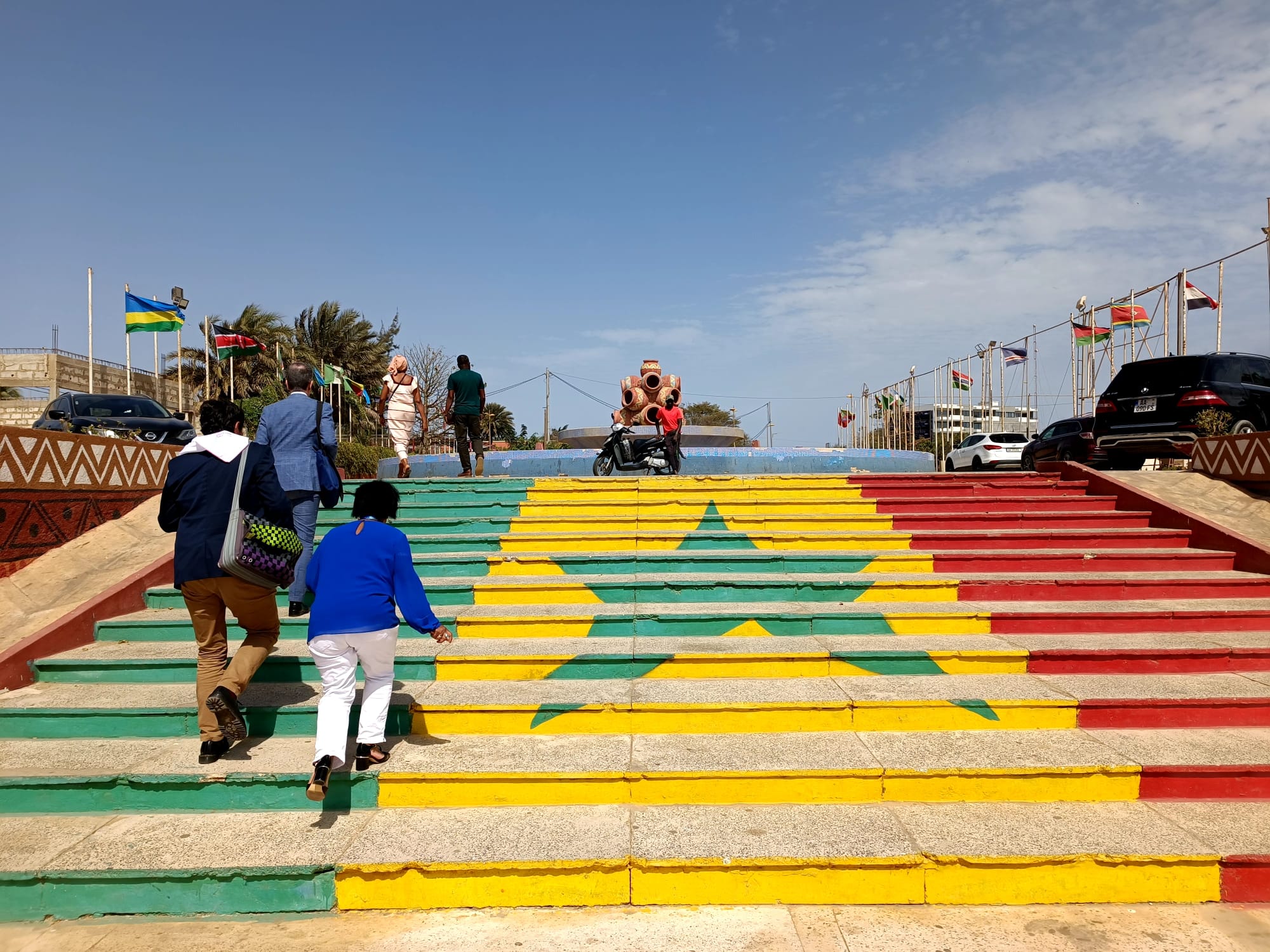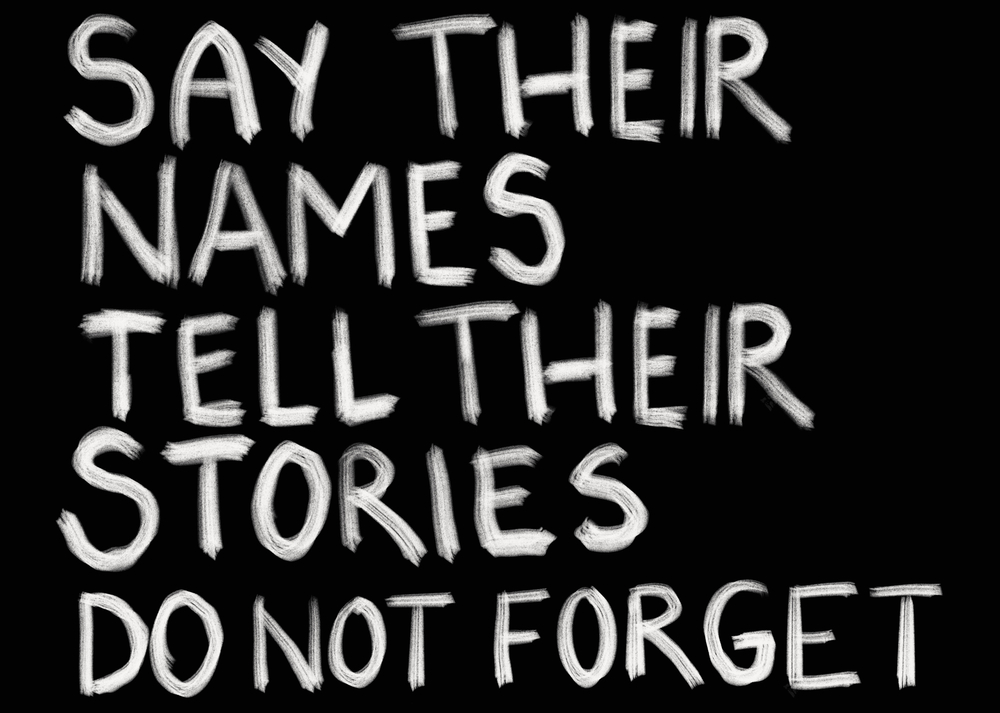Conversation: The need for equal EU-African relations, the importance of recognising the historical background and what Europe can learn from Africa.
24 July 2020 by Claudia Simons
Published by: Heinrich Böll Stiftung Brussels

Dr. Pierrette Herzberger-Fofana, Member of the European Parliament for the Greens, Germany and Alfonso Medinilla, Policy Officer at ECDPM (European Centre for Development Policy Management) in a conversation with Claudia Simons, Senior Programme Officer – Africa Division, Heinrich-Böll-Stiftung, Berlin
Claudia Simons: The Cotonou Agreement has been extended until the end of the year, after which it will expire. We’re therefore in the process of negotiating a new document setting out a new agreement. What do you expect from this new agreement? What aspects should be changed?
Pierrette Herzberger-Fofana: When we look at the relations between the European Union and Africa, we know that they are very intense and intimate, but they are also relations marked by pain and suffering. The past plays a role for the future as well as for the present. All the more so as the relations between Europe and Africa are not isolated, and in the Cotonou Agreement we could perhaps remove this somewhat “paternalistic” aspect. For example, with regard to the EPAs (Economic Partnership Agreements), there is a need for transparency that could lead to successful partnerships. Something that is close to my heart and that during my field trips, whether in Nairobi or Kigali, practically all the women told me is: “in these agreements, we’ve been overlooked”. It must be admitted, that the protection of women and girls has not been clarified. In economic terms, the problem seems even more obvious to me. When we have a surplus of milk in Europe, we send it to African markets. In this way, we’re destroying the economic basis of many women who work in this field and who see their lives destroyed overnight.
Alfonso Medinilla: In a way, the Cotonou Agreement symbolises to the old and often paternalistic model of engagement with Africa. The EU has historically pursued a double approach, with a development-oriented partnership on the one hand and political partnership with the African Union on the other. This has led to a number of contradictions, including the fact that the regional integration in Africa, as well as European interest in Africa have outgrown ACP-EU relations. What really needs to change now is to go beyond this traditional partnership based on the transfer of development aid from EU to ACP governments. The parties also need to ensure that a future Cotonou Agreement will be able to support – or at least not oppose -regional integration in Africa (including with the African Continental Free Trade Area). There is also an urgent need to redefine the approach to political dialogue, focusing less on one-sided demands and more on opportunities and joint initiatives.
In March, we learned what the European Commission’s priorities were regarding EU-Africa relations. Do you see a willingness to change the relationship in favour of more respectful and egalitarian relations, or does it still seem insufficient?
Pierrette Herzberger-Fofana: We appreciate the fact that the European Union wishes to include a new strategy in the relations with Africa. Our aim is to give a positive image of Africa that breaks with the traditional image of a continent adrift. However, we are going to have to make this a reality, because we can say and write whatever we want without anything changing. We have to shoulder our responsibilities, by also agreeing to change our way of life and developing our economies. We must now try to help achieve “sustainable development”. On this point, we still have some interesting possibilities in Africa. I’m thinking in particular of digital transformation, when I see that in Africa there are women who can neither read nor write but who are digitally literate. I could also criticise the fact that there is a tendency to focus this transformation solely on young people, whereas I have seen women around my age using digital technology.
Environmental protection is just as important because if we destroy the environment and want to develop local economies at all costs, we are simply giving with one hand and taking away with the other. The climate crisis is obviously a problem. I believe that we can manage this crisis together if we are prepared now to talk to each other as equals and always taking into account what our partners want.
With Ursula von der Leyen as President of the Commission and the German EU Council Presidency, Germany currently carries enormous weight in the European Union. So, how do you assess Germany’s influence on the EU’s relations with Africa?
Alfonso Medinilla: It’s very clear that Germany is playing a fairly important role in view of Ms von der Leyen’s position at the head of the Commission and also in view of the German EU Council Presidency. What I observe is rather the dynamics of the member states in general with Africa and the strengthening of the Commission’s position in the field of foreign affairs. An increasing number of member states are now also developing their own Africa strategies. There has also been a change in rhetoric: while the use of the narrative of “equal partnership” is certainly not new – we have had several versions of it since 2000 – this is now also coupled with a change in the diplomatic process, with much more intensive engagement on both sides.
There is also a real emergence of a stronger leadership dynamic with the African Union more visibly engaging in the foreign affairs of its member states. There are real opportunities to change the tone of this commitment and to move towards a kind of counter-offer on the part of the African Union. More specifically on migration, but also on the issue of climate change. We can also see that some African leaders are beginning to notice that they agree in principle, but that there are nevertheless [other] elements that need to be taken into account. The EU’s “Farm to Fork Strategy”, for example, may pose some problems for the agricultural sector in some parts of Africa.
Pierrette Herzberger-Fofana: And we had the impression that Germany would make Africa its strong point when it took over the Presidency. On the eve of the Presidency, this is not at all as clear as it was when we attended the meetings. That’s a pity because the African continent has high hopes in Germany, and it was convinced that a very strong change would take place because Germany wanted to get involved. After all, Germany is still the most powerful and largest country in the European Union, and if it now really gets involved, we will also see changes at the level of the European Union, and Germany could even influence those states that do not have strong connections with African countries.
If one of the priorities of the European Union is the establishment of balanced partnerships, what should be done in the field of migration to balance this partnership between the European Union and African regional partnerships, the African Union and bilateral partnerships?
Pierrette Herzberger-Fofana: Our position within the Greens corresponds with the position of African countries that advocate and demand legal migration channels. Therefore, migration is an asset. If it is possible that we need labour from Africa to come and work here, then it is also possible to bring in this labour, or skilled people who can come directly. On this point, we can always agree on the ways and means. Those who are coming now are students, people who have finished their studies. We are organising a kind of “brain drain” – this is unacceptable. What’s more, people talk about migration as if it always goes from south to north. However, there is also migration from north to south. When we say that we are going to talk to someone on an equal footing, it means that we are going to consider all the problems and find solutions that will be favourable to everyone in a post-Cotonou Agreement..
Alfonso Medinilla: First of all, the debate on migration is polarised and politicised. In Africa, frustration with the European Union’s migration policies has only increased in recent years. It is clear that there is a demand from African countries to facilitate migration through legal channels and a more respectful policy. However, at the same time, the process has always been extremely fragmented in EU-Africa relations, and the EU member states do not easily agree on migration. There is a potential for change within the framework of the Europe-Africa process by prioritising the continent-to-continent level on migration. A link also needs to be made with the regional integration in Africa and the various ongoing initiatives for the free movement of people. On the African side, there is a demand not only in terms of the evolution of migration policy, but also in terms of diplomatic relations and negotiations, calling to go through AU systems rather than ad-hoc arrangements. The European Union has made its interests in the EU-Africa partnership very clear, and has a lot riding on its Green Deal and transition objectives, for which it also needs partners to work multilaterally. By making a link between the different areas and themes, there is a possibility of creating a stronger negotiation dynamic.
It has been reported that many European countries have managed the Covid-19 pandemic very badly. So, what has become of this famous image of Europe? What will the long-term consequences be for relations between Europe and Africa?
Pierrette Herzberger-Fofana: Covid-19 primarily revealed the flaws in the European system. Europe is no longer a super-powerful continent. Some European countries have also managed their own problems in a catastrophic way, while Africa has managed this crisis quite well in general. This catastrophe has at least had the advantage of making us look at why things work. We should take a more holistic approach to the disease – some African countries have had successes against the disease with herbal medicines that we should at least have a look at.
How do you see the “Black Lives Matter” movement, which is certainly not new, but which has been given much more media coverage today, and been much more criminalised at times as well, but which has raised the general public’s awareness? Do you see a real change today in the relationship with Africa with regard to these events?
Alfonso Medinilla: There is not really any substantive debate in European countries beyond the symbolic level. As a Belgian citizen, I support the demands for the decolonisation of the public space, and I believe local authorities have an important role to play in this. That said, these demands are but a secondary expression of the deep-rooted tensions that exist within European societies. At the diplomatic level between the European Union and Africa, and especially between countries like France and African countries, however there is not really this kind of debate. It’s probably difficult on the diplomatic front, but I don’t see any inclusion of the issues around the mistreatment of the African diaspora. Listening to the speeches of African leaders, however I was positively surprised with Moussa Faki’s press release and the reference he made to Malcolm X, which remains incredibly relevant today.
Pierrette Herzberger-Fofana: I would say there is a change. That’s undeniable. Just look at the number of protesters in the streets. Now, we are somewhat forgetting that the diaspora is also playing a role. This diaspora has become a European diaspora with the second and third generations. There are many who were born and grew up in Europe, but they also remain very connected to Africa. Who really knows the history of Africa and the atrocities perpetrated in the name of the civilizing mission? Who knows about the genocide of the Namibian people by the German authorities in their former colony?
In my opinion, colonial history as it was, not as it has been presented, should be introduced in all European history books. Let us take the case of Belgium. Who knows that the Congo is 80 times larger than Belgium and that the King of the Belgians Leopold II made it his private property even though he never set foot in the country? Who is aware of the atrocities and violence of all kinds that have been committed in the Congo and in all the former colonies? I welcome the decision of the current sovereign to apologize to the Congolese people for all the abuses committed by Leopold II – after 135 years. The violence against black people is in fact a bit of a remnant of colonial laws. Police brutality against black people still exists.
If we succeed to rewrite and teach history as it was, then we will be able to heal the old wounds and wounds that are disrupting Europe-Africa relations. It is at this price that we will build a future in which human rights apply to everyone. Then it will be possible to live together in a world where peace will reign.
The conversation took place on 26 June 2020.



